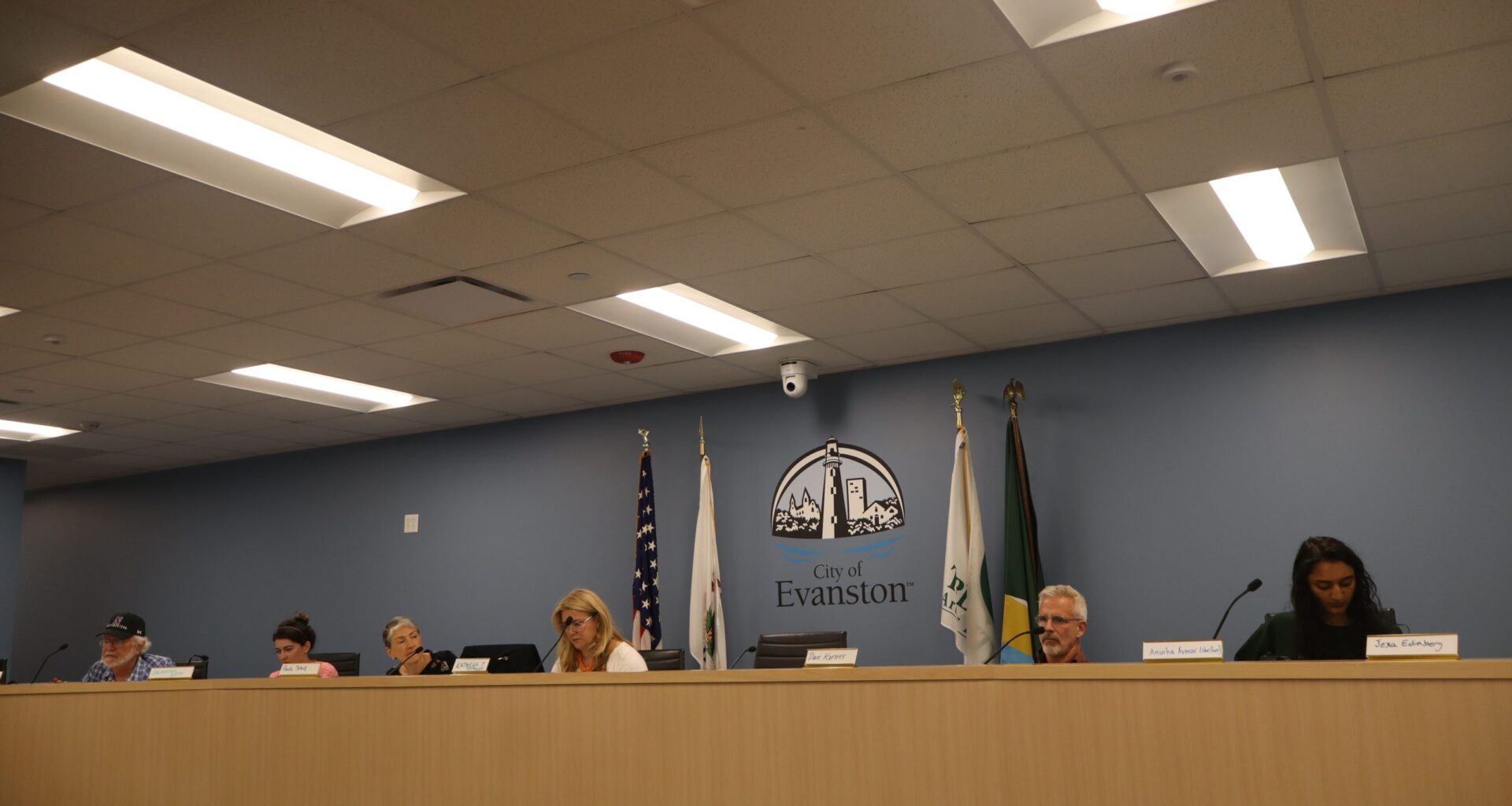The city’s Environment Board spent much of its Aug. 29 meeting looking to the future.
With Evanston’s power aggregation agreement with Chicago-based MC Squared Energy Services expiring next year, the city is developing a Request for Proposals from potential providers, and staff asked the board to weigh in on what it would like to see in the next agreement.
That included a discussion on how the the city should approach Renewable Energy Credits (RECs), which give cities the opportunity to buy renewable energy production elsewhere to offset some of their own carbon footprint. The board largely supported continuing to purchase credits, but some members disagreed on where the city should buy them.
The board also discussed future agenda items and what kind of policies it wants to develop and recommend to City Council. All members in attendance offered ideas, and, after some back and forth, they agreed to pare down the list to a series of top priorities at the Sept. 25 meeting.
At that meeting, Evanston Transportation and Mobility Coordinator Sarah FioRito will update the board on public transit, and at the October meeting, Senior Project Manager Bridget Nash will give an update on the city’s Stormwater Master Plan.
The future of RECs
RECs are certificates showing that a utility plant generated one megawatt of electricity from renewable energy, such as solar or wind power. By buying RECs, municipalities like Evanston pay utilities for generating electricity from renewable sources, even if they don’t necessarily get that energy themselves.
Cara Pratt, the city’s sustainability and resilience manager, said Evanston has been buying RECs since 2012, applying them to the electricity that Evanstonians get through MC Squared. The purchases have largely funded wind power generated by Midwestern utilities, according to Pratt.
Board member David Karnes said he would favor branching out beyond that, so “we get more bang for our buck in cheaper markets.”
Gennifer Geer, another board member, said she was worried that “by buying RECs from a state with less sustainability-friendly policies,” Evanston would be “encouraging that type of policy,” mentioning Texas as an example. Board member Gul Agha, though, responded that “the money isn’t going to Texas.”
“What it’s doing is subsidizing the cost for renewable energy,” he said.
 Power lines in El Paso, Texas, as seen from the Sunset Limited Amtrak train window. Credit: Igor Studenkov/Contributing Reporter
Power lines in El Paso, Texas, as seen from the Sunset Limited Amtrak train window. Credit: Igor Studenkov/Contributing Reporter
Future agenda items
Toward the end of the meeting, board co-chair Paula Scholl summarized some of the policy recommendations that came up at previous meetings and some ideas of her own.
Most notably, she mentioned a presentation on the environmental justice work that the Gichigamiin Indigenous Nations Museum has been doing, a discussion of how the city can better “infuse” climate goals into city operations, having the city’s new forestry supervisor Tom Ianetti talk about his plans and weighing in on the Envision Evanston zoning code rewrite.
At their last meeting before departing for college, Jexa Edinberg said they’d like to see the board build relationships with natural area stewards and also in District 65 schools.
Board member Anusha Kumar said she wants the board to look into subsidies to help middle- and low-income homeowners make their houses more energy efficient.
Agha added that he’d like to see the City Council adopt two new environmental policies — a food composting mandate and a requirement that developments that need zoning approval show their projected carbon footprint.
Geer said she would like a composting ordinance, too, plus a lakefront protection ordinance, an idea that’s been discussed for the past 15 years but never adopted. She also suggested an update to the 2009 Evanston Multi-Modal Transportation Plan.
Pratt replied that this was something FioRito and the city’s Bureau of Capital Planning and Engineering has been quietly working on, and that FioRito could discuss it at next month’s meeting.
Olin Wilson-Thomas, an Evanston Township High School student and board member, said he’d like to look into getting rid of parking minimums, an item discussed before he was appointed to the board. He also encouraged bike and transit infrastructure improvements.
Related Stories
